T0@st
News Editor
- Joined
- Mar 7, 2023
- Messages
- 3,063 (3.88/day)
- Location
- South East, UK
| System Name | The TPU Typewriter |
|---|---|
| Processor | AMD Ryzen 5 5600 (non-X) |
| Motherboard | GIGABYTE B550M DS3H Micro ATX |
| Cooling | DeepCool AS500 |
| Memory | Kingston Fury Renegade RGB 32 GB (2 x 16 GB) DDR4-3600 CL16 |
| Video Card(s) | PowerColor Radeon RX 7800 XT 16 GB Hellhound OC |
| Storage | Samsung 980 Pro 1 TB M.2-2280 PCIe 4.0 X4 NVME SSD |
| Display(s) | Lenovo Legion Y27q-20 27" QHD IPS monitor |
| Case | GameMax Spark M-ATX (re-badged Jonsbo D30) |
| Audio Device(s) | FiiO K7 Desktop DAC/Amp + Philips Fidelio X3 headphones, or ARTTI T10 Planar IEMs |
| Power Supply | ADATA XPG CORE Reactor 650 W 80+ Gold ATX |
| Mouse | Roccat Kone Pro Air |
| Keyboard | Cooler Master MasterKeys Pro L |
| Software | Windows 10 64-bit Home Edition |
Apple's engineering team is rumored to be adjusting performance targets set for its next generation mobile SoC - the A17 Bionic - due to issues at the TSMC foundry. The cutting edge 3 nm process is proving difficult to handle, according to industry tipsters on Twitter. The leaks point to the A17 Bionic's overall performance goals being lowered by 20%, mainly due to the TSMC N3B node not meeting production targets. The factory is apparently lowering its yield and execution targets due to ongoing problems with FinFET limitations.
The leakers have recently revealed more up-to-date A17 Bionic's Geekbench 6 scores, with single thread performance at 3019, and multi-thread at 7860. Various publications have been hyping the mobile SoC's single thread performance as matching that of desktop CPUs from Intel and AMD, more specifically 13th-gen Core i7 and 'high-end' Ryzen models. Naturally the A17 Bionic cannot compete with these CPUs in terms of multi-thread performance.
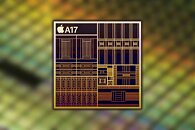
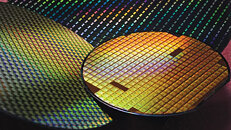

Apple has an excellent reputation for its chip designs, and a good portion of their customer base are not too concerned with hardware specifications, so the rumors of slightly lowered performance expectations for next's years flagship devices could be less of a headache for the engineering team. The current generation A16 Bionic outperforms Qualcomm's latest Snapdragon 8 Gen 2 in terms of pure processing power, and only lags slightly behind with its GPU's capabilities.
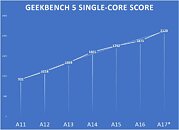
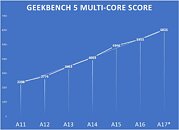

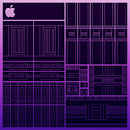
View at TechPowerUp Main Site | Source
The leakers have recently revealed more up-to-date A17 Bionic's Geekbench 6 scores, with single thread performance at 3019, and multi-thread at 7860. Various publications have been hyping the mobile SoC's single thread performance as matching that of desktop CPUs from Intel and AMD, more specifically 13th-gen Core i7 and 'high-end' Ryzen models. Naturally the A17 Bionic cannot compete with these CPUs in terms of multi-thread performance.



Apple has an excellent reputation for its chip designs, and a good portion of their customer base are not too concerned with hardware specifications, so the rumors of slightly lowered performance expectations for next's years flagship devices could be less of a headache for the engineering team. The current generation A16 Bionic outperforms Qualcomm's latest Snapdragon 8 Gen 2 in terms of pure processing power, and only lags slightly behind with its GPU's capabilities.




View at TechPowerUp Main Site | Source









